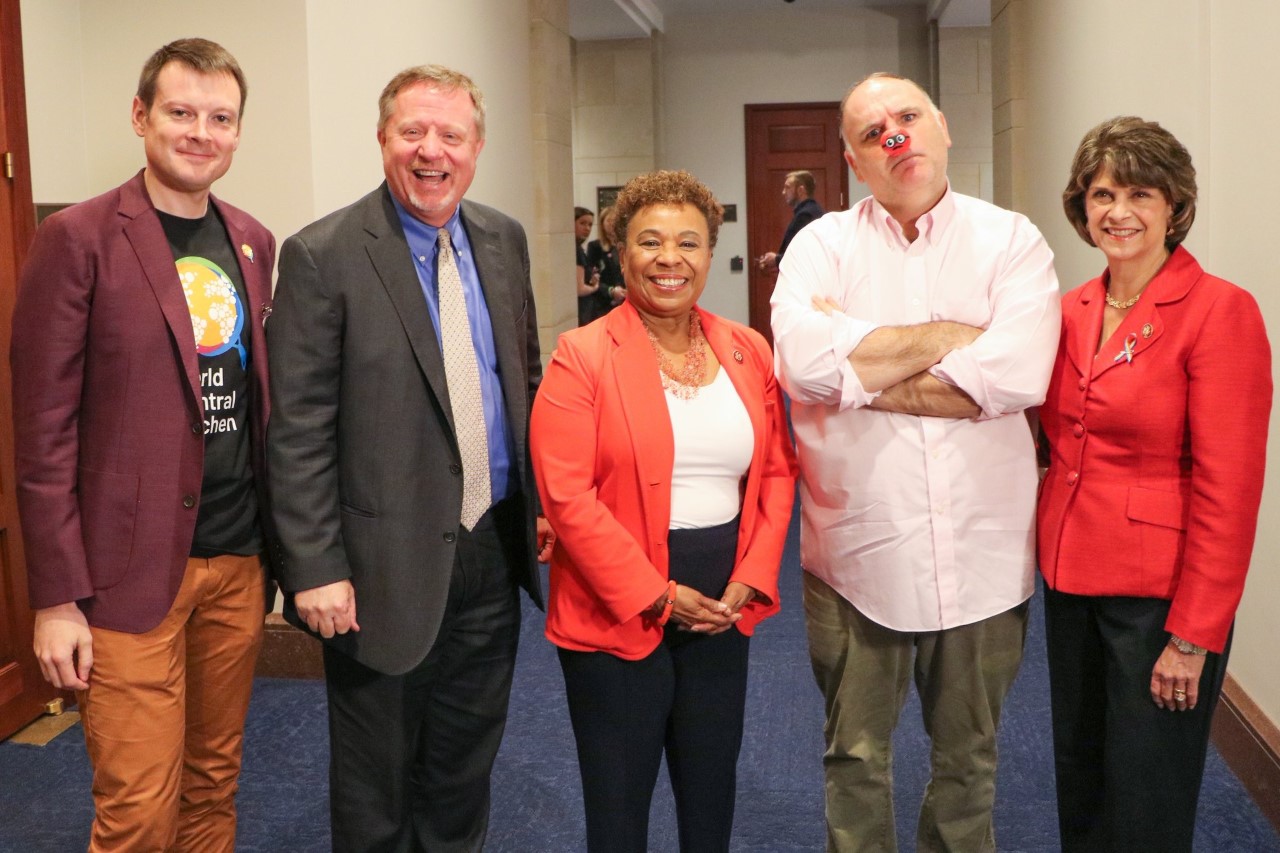
Putting the Spotlight on Child Poverty

Congresswoman Lucille Roybal-Allard (D-CA) giving a compelling speech on the nationwide prevalence of child hunger. (Photo Credit: Samuel Chasin, @shmuley)
Editor’s note: CHN Intern Sarah Morrison is a rising senior at the University of Maryland. She is studying Economics and Non-Profit Leadership.
As we approach the upcoming months of summer vacation, it’s easy to imagine the flurry of excitement for students awaiting long days of snow cones and playing at the pool. However, this is often not the case. For many children, this time of year means losing access to school meal programs and facing the threat of hunger. This was a major point of conversation at the Spotlight on Child Poverty event at the Capitol on June 12, part of First Focus’ Children’s Week 2019.
Rep. Lucille Roybal-Allard (D-CA) shared her own experience, painting a clear image of how detrimental poverty can be to a child’s well-being. When visiting an elementary school in her district, a teacher pointed out a young girl and shared that “she cries every Friday, because she knows she will be hungry over the weekend without school-provided meals.”
Unfortunately, stories like this are not uncommon. The Supplemental Nutrition Assistance Program (SNAP) does not fill the gap, and a mere 17 percent of children who are eligible for meal assistance programs during the school year are able to make use of them during the summer months. Congress now can, and should, prioritize the Child Nutrition Act reauthorization in order to expand funding to programs providing benefits to needy children.
Humanitarian and renowned chef Jose Andres was in attendance as a guest speaker, bouncing in enthusiastically donning his red nose in support of Comic Relief’s Red Nose Day to reduce child poverty, Comic Relief being one of the event’s main sponsors. Offering his own unique perspective and experiences, Andres repeatedly announced that “children don’t want our pity, they want our respect. And they are here to help us lead the way.”
Citing stories of young children living in deep poverty who he has met over his years of activism, he told of children’s generosity and leadership ability. Notably he told the story of Lola, a 12 year-old he met during his time working in Puerto Rico to alleviate hunger. With two parents who worked in the food truck business, Lola immediately made herself known by working in the sandwich lines, and rising quickly to supervise the adults making sandwiches. It is kids such as Lola who the adults in the world should be looking to when they seek to understand both the issue of and solutions to child poverty.

Nate Mook (World Central Kitchen), Bruce Lesley (First Focus), Congresswoman Barbara Lee (D-CA), Chef Jose Andres, and Congresswoman Lucille Roybal-Ballard (D-CA) all in attendance to support reducing child poverty. (Photo Credit: Samuel Chasin, @shmuley)
A number of speakers present commented on the current political climate in Congress. “We all need to be more political – not partisan – political. Let’s get the pressure on Congress,” said Rep. Jim McGovern (D-MA), Chairman of the Congressional Hunger Caucus.
According to Kate Leone, Chief Government Relations Officer for Feeding America (and a Board member of the Coalition on Human Needs), experts have found that there is child poverty in every single congressional district. When the health of our nation’s children is at risk, it puts a unique perspective on the senselessness of a deeply polarized government.
Partisanship aside, research has proven that making meaningful reductions in childhood poverty is within reach. The National Academies of Science, Engineering, and Medicine (NASEM) created a Roadmap to Reducing Child Poverty that includes four “packages” that could reduce child poverty and deep poverty by up to 50 percent in 10 years. Considering that the cost of providing the means-tested policies suggested by NASEM is offset by reduced expenditures related to the multiple hardships stemming from child poverty, the report should appeal to all policymakers.
Members of Congress are at a pivotal moment; they have the research in hand to alleviate child poverty. It seems to be only a matter of summoning up the political will to turn intentions into outcomes. As CEO and Executive Director of Kids Forward Ken Taylor reminded the room, “Children are one-fourth of our population, but all of our future.” It only seems just that we provide them with the quality of life that they need to thrive.

